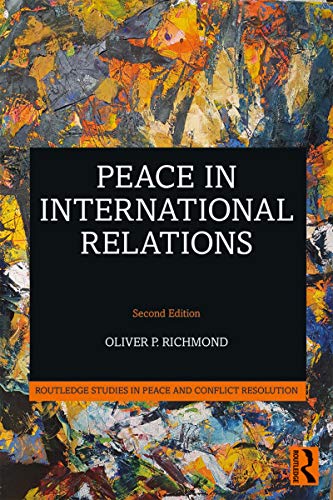

Most ebook files are in PDF format, so you can easily read them using various software such as Foxit Reader or directly on the Google Chrome browser.
Some ebook files are released by publishers in other formats such as .awz, .mobi, .epub, .fb2, etc. You may need to install specific software to read these formats on mobile/PC, such as Calibre.
Please read the tutorial at this link. https://ebooknice.com/page/post?id=faq
We offer FREE conversion to the popular formats you request; however, this may take some time. Therefore, right after payment, please email us, and we will try to provide the service as quickly as possible.
For some exceptional file formats or broken links (if any), please refrain from opening any disputes. Instead, email us first, and we will try to assist within a maximum of 6 hours.
EbookNice Team

Status:
Available4.4
18 reviewsThis updated and revised second edition examines the conceptualisation and evolution of peace in International Relations (IR) theory.
The book examines the concept of peace and its usage in the main theoretical debates in IR, including realism, liberalism, constructivism, critical theory, and post-structuralism, as well as in the more direct debates on peace and conflict studies. It explores themes relating to culture, development, agency, and structure, not just in terms of representations of IR, and of peace, but in terms of the discipline of IR itself. The work also specifically explores the recent mantras associated with liberal and neoliberal versions of peace, which appear to have become foundational for much of the mainstream literature and for doctrines for peace and development in the policy world. Analysing war has often led to the dominance – and mitigation – of violence as a basic assumption in, and response to, the problems of IR. This study aims to redress this negative balance by arguing that the discipline offers a rich basis for the study of peace, which has advanced significantly over the last century or so. It also proposes innovative theoretical dimensions of the study of peace, with new chapters discussing post-colonial and digital developments.
This book will be of great interest to students of peace and conflict studies, politics, and IR.